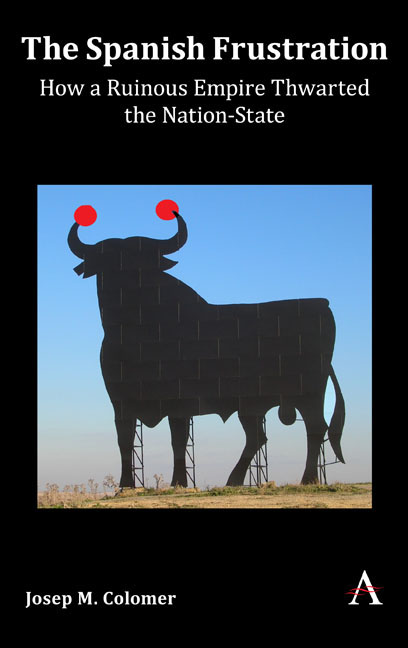Introduction: When Did Spain Screw Up?
Published online by Cambridge University Press: 11 July 2019
Summary
There has never been anything solid, there has never been anything stable here. Spain cannot be a great country because there is no continuity. The Spaniards survive thanks to a tradition of amnesia, of forgetting, of living the moment. Carpe diem.
Ian Gibson, writer and Hispanist, 2017My impression is that we do not know what we want to do with Spain. It is difficult to identify a project for Spain. Is there a project for Spain that is truly exciting for the whole of the Spaniards and attractive to the Catalans as a whole, whether or not they are separatists? Or is Spain really absent from herself?
Felipe González, former prime minister, 2018When did Spain screw up? Was it when the recent real estate and banking bubbles exploded? It must have been before, because the impression is that what returned afterward was the eternal Spain, the one of legal and moral laxness, the picaresque and arrogance of both the rulers and the ruled. Was it, thus, when the Civil War and Franco destroyed so many social nets and norms? Or when Primo de Rivera terminated an evolution toward a Britishstyle parliamentary monarchy and provoked the subsequent polarization? Or even before? Perhaps much before.
The initial question is inspired by the obsession of a character of novelist Mario Vargas Llosa: “When did Peru screw up?” Some time ago, I was introduced to a Peruvian politician, Julio Guzmán, who had been controversially eliminated as a candidate for a recent presidential election. After listening to his radical criticism of the country's rulers, I asked him what his answer to that question was. Without hesitation, he said, “In 1513.” That is, at the beginning of the conquest by the Spaniards that would destroy the Inca civilization and impose a centralizing and unproductive system from which the Peruvians have never just recovered (I synthesize, more or less, his words). My response was as follows: “It may be. In fact, I think Spain also screwed up in 1492.” The empire made Spain, and the failure and dissolution of the empire unmade Spain.
The Spanish imperial adventure was a disaster for the colonized, the colonists and the people remaining in Spain, from which the country has never completely recuperated.
- Type
- Chapter
- Information
- The Spanish FrustrationHow a Ruinous Empire Thwarted the Nation-State, pp. 1 - 4Publisher: Anthem PressPrint publication year: 2019



